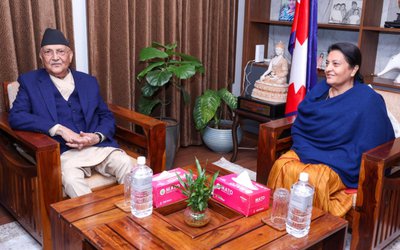When Nepal and Russia (formerly Soviet Union) established diplomatic relations sixty years ago, the world had been passing through a crucial period of cold war. With limited numbers of manpower and technicians required to meet the country’s demand, Nepal was in desperate need of trained manpower in technical sectors.
Having spent almost a century under the Ranas and in complete isolation, the polarized world politics was very complicated for Nepal. When Nepal decided to establish relations with Russia, there was a growing concern from all sides.
Despite all these difficulties and complexities, Nepal and Russia agreed to establish diplomatic relations. Along with signing protocol for establishment of diplomatic relations, the two countries signed the agreement for the exchange of education and cultural relations. This agreement formally opened then Soviet Universities for Nepali students who went there to pursue technical education.
In the last sixty years, Russia has supported Nepal immensely in providing higher education for Nepalis in medicine, engineering and other scientific areas. The two countries have seen many ups and downs in their internal history, though.
Soviet Union was dissolved along with its communist system in 1989 and partyless Panchayat system came to an end ushering in a new phase of multi-party democracy. The dissolution of Soviet Union brought prolonged political instability in Russian Federation. Similarly, the restoration of democracy introduced a liberal political system in Nepal but Nepal too faced the series of political crises after that.
This has greatly impacted the bilateral relations between the two countries. Although Nepal is among the first countries to recognize Russian Federation, the old relations, of scholarship era, have come to an end. With more than 5000 Russian returned doctors and engineers, Nepal –Russia Relations at people to people level, however, have remained intact.
Following the restoration of multi-party democracy in 1990, Nepal’s policymakers rarely made efforts to boost the bilateral relations between the two countries. In the world of former ambassador of Nepal to Russia Hiranya Lal Shrestha, there is virtually a thaw in the relations.
Written by well known political scientist Bhagwan Ratna Tuladhar, reflections on Nepal-Russia Relations is a first book which analyzes the historical perspective and present context of relations existing between the two countries.
“His collections of essays are lively accounts of two-way interactions and analysis of a scholar. He has covered historical background, political trend and various aspects of aid-based politics in his book. He explains how the non-ratification of Nepal’s peace zone proposal by Russia displeased Nepal and its adverse effect on the Nepal Russia Relations thereafter,” writes Hiranya Lal Shrestha. "Nepal-Russia diplomatic relations is a people initiated relation. We find its continuity in all the times.”
In his book Tuladhar has highlighted how Nepal Russia relations evolved. The relations were established during the period when there was a strong anti-Communist alliance in the region. “Establishing the diplomatic relations with Russia was a bold step of monarch of Nepal and also an example of successful Soviet diplomacy."
Launched jointly by Russian ambassador to Nepal Andrey S. Budnik and joint secretary of Ministry of Foreign Affairs Bhrigu Dhungana, the book narrates the historical importance of Nepal Russia relations.
Reflections On Nepal-Russia Relations
By Bhagwan Ratna Tuladhar
Published by Nepal Russia Friendship and Cultural Association
Pages: 98
Price: Rs. 50.00



